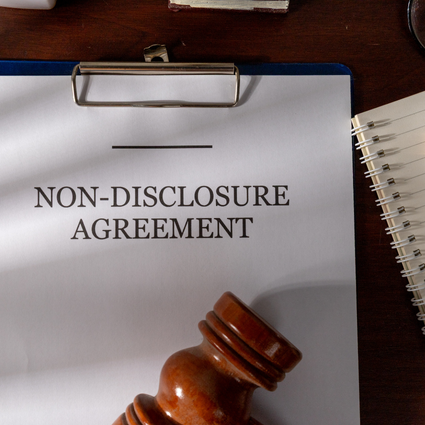Table of contents
Being a Shareholder – Only Upside?
People often buy, sell and gift shares like other tradeable commodities, without turning their minds to the underlying rights, privileges and risks that may accompany this purchase.
This is natural since most people view shares as a means of realising a capital return – a pure investment vehicle where the rights and responsibilities of control attached to the shares are insignificant enough to ignore.
However, shares are also the face of ownership. So, what are the risks of being a shareholder? Are there any, or is it really all upside?
Generally speaking, there are very few risks associated with being a shareholder in a company. This is due to the company’s status as a separate legal entity.
The company itself can enter contracts and borrow money; it is a separate entity responsible for paying tax and servicing its debt. It can both sue and be sued. This special status means shareholders are insulated from the legal risks that would otherwise flow from these commercial dealings.
For example, a shareholder is not responsible for any outstanding debt an insolvent company may have. This is irrespective of when the company incurred the debt, or how the shares are held (i.e., personally or through a trust).
Being a shareholder means you own part of the company and therefore have certain rights under the Corporations Act 2001 (Cth) (Corporations Act). A Company Constitution or Shareholders Agreement can modify these rights, but they typically include the right to attend shareholder meetings, the right to vote on key issues, and the right to dispose of your shares. Shareholders also have the right to receive dividends and other distributions, although profits and dividends are never guaranteed.
What are the risks of becoming a shareholder? Are there any?
- Losing your capital contribution
One of the most significant risks of becoming a shareholder is losing the capital you contributed to the company. For passive shareholders who don’t contribute to the working capital of the company, this may simply be caused by an erosion of the value of their shares.
Active shareholders may make capital contributions in other ways, such as by providing initial funding in exchange for shares, or continued funding in support of the daily operations of the company. In the absence of specific agreements, a company has no obligation to repay any funds contributed by a shareholder. In the event that the company becomes insolvent, it is unlikely that these shareholders will be able to recoup their funds.
2. You may be required to provide a form of security
At a commercial level, financiers and any other person or entity advancing credit to a company may request security from shareholders personally over a company line of credit or loan. Strictly speaking, such arrangements are always ancillary to any obligations attached to being a shareholder and it is up to the shareholder whether or not to agree to them. Practically, however, agreeing to such an arrangement may be the only way to ensure the company has adequate funding.
3. You may be required to become a director of the company and comply with the
director’s duties
Directors, not shareholders, are responsible for the management and day-to-day affairs of the company. In most cases, however, shareholders, and especially those with a significant shareholding, want some control over those decisions. As such, it is common for such shareholders to appoint a director.
A shareholder who is or has appointed a director has more control over the company but is also exposed to significant liability in their capacity as director. For example, if they breach any of the director’s duties provisions of the Corporations Act, they may be personally sued or in severe cases, be subject to criminal prosecution.
4. Restraint of trade
Restraint of trade provisions are a common inclusion in shareholders agreements. Shareholders may be privy to sensitive company information, and as such, companies will often seek to protect themselves by restraining shareholders’ ability to use that information.
5. Tax considerations
Shares in a company are an asset and as such, there are tax considerations to acquiring and disposing of them. You should always seek the advice of a qualified tax specialist to understand the tax implications before acquiring this type of asset.
Conclusion
In most cases, the potential upside of becoming a shareholder outweighs the risk of doing so. However, becoming a shareholder is usually not risk free, depending on the commercial and practical circumstances surrounding the investment.
At Burch&Co, we have a great team of experienced lawyers ready to answer any questions you have about investing in or accepting a gift of shares in a company. Whether you would like to discuss the risks of becoming a shareholder, or are seeking a specific answer to a specific question, don’t hesitate to get in touch with our team at contact@burchcolawyers.com.au
Ben Dodds – Paralegal, Corporate Team
Sam Levin – Associate, Corporate Team
Victoria Moffat – Associate Director, Corporate Team








